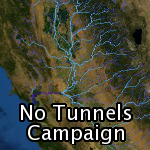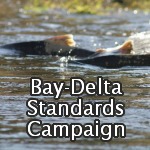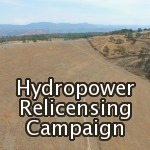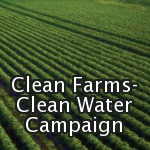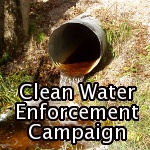On April 9, 2024, California Sportfishing Protection Alliance (CSPA) and other fishing and environmental advocacy groups submitted a response to the State Water Resources Control Board (State Board) supporting its recent decision to set aside water quality certifications for five hydroelectric projects.
These projects are the Merced Irrigation District’s (Merced ID) Merced River Hydroelectric Project and Merced Falls Hydroelectric Project, Nevada Irrigation’s District’s (NID) Yuba-Bear Hydroelectric Project, and Modesto Irrigation District (MID) and Turlock Irrigation District’s (TID) Don Pedro Hydroelectric Project and La Grange Hydroelectric Project.
The State Board proposed this order in response to the United States Environmental Protection Agency’s (USEPA’s) issuance of the final Clean Water Act, Section 401 Water Quality Certification Improvement Rule that took effect in November 2023. The State Board has put the proposed order on the agenda for its meeting on May 7, 2024.
The USEPA’s 2023 Rule prevents the State Board and other certifying authorities from issuing water quality certifications in the absence of a pending request for certification. When the State Board issued water quality certifications for projects managed by Merced ID, NID, MID, and TID, those projects did not have pending requests for certification.
Background
Every hydroelectric project in California that seeks to renew its license with the Federal Energy Regulatory Commission (FERC) must obtain a water quality certification or a waiver of certification from the State Board.
Prior to the USEPA’s 2023 Rule, there was ambiguity surrounding whether or not the State Board was authorized to issue a water quality certification for a hydroelectric project if the relevant entity did not have a pending request for certification. The USEPA’s 2023 Rule clarified this issue.
Licensees Have Taken Advantage of Ambiguities
For far too long, Merced ID, NID, MID and TID, and other operators of hydroelectric projects have sought to exploit ambiguities in the regulatory process in order to delay or avoid meeting their responsibilities under Clean Water Act Section 401. These entities have challenged the state’s authority under Section 401 and have tied up water quality certifications in lengthy court battles.
The question of whether the State Board can issue a water quality certification in the absence of a request for certification from the relevant entity is often at the center of these battles. In fact, MID and TID actively withdrew pending requests for certification with the clear aim of not allowing the State Board to issue a certification. At the same time, MID and TID unsuccessfully sought a waiver of the state’s authority to issue a certification.
Each of these entities also deliberately failed to initiate and complete state environmental analysis under the California Environmental Quality Act (CEQA) for their respective certifications. The state legislature recognized this practice as obstructionist.
In June of 2020, the California legislature enacted Water Code § 13160 (b)(2) to allow the State Board to issue a water quality certification prior to the completion of the CEQA process “if the state board determines that waiting until completion of that environmental review to issue the certificate or statement poses a substantial risk of waiver of the state board’s certification authority under the Federal Water Pollution Control Act or any other federal water quality control law.”
Conclusion
CSPA and its allies stated in their comments that they largely supported the water quality certifications the State Board issued for these projects. CSPA and allies participated in the respective licensing proceedings for these projects for over a decade and devoted great amounts of time and resources to advocate for “appropriately protective water quality conditions” to be included in these water quality certifications.
Nonetheless, CSPA and allies support the State Board’s proposed order to set aside these water quality certifications. The USEPA’s 2023 rule has the potential to expedite future water quality certifications and, more importantly, will expedite the certification process and “increase the legal defensibility” of the State Board’s water quality certifications.
CSPA and allies further urged the State Board to request that FERC compel the licensees in question to request water quality certification for the projects at issue within 30 days.



